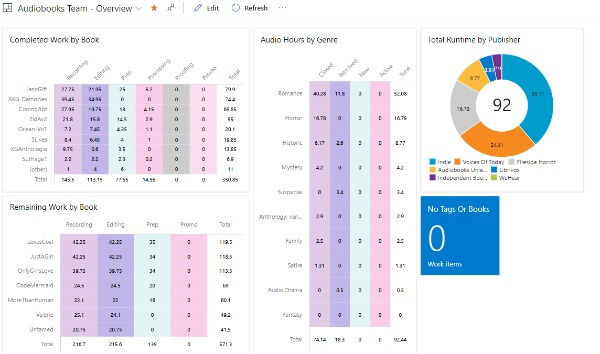Inspect, adapt, rinse & repeat
- kristinarothe

- Dec 10, 2021
- 4 min read
One of the things you learn in agile software development is the principle of "Inspect and adapt". This is true for everything really, be it workflows, processes but also features and the likes. How are things going? What works well? What could be better (and how could it be improved)?
Also, these questions can be asked from a variety of perspectives, such as your own, your team member's, any client you might have (internal, external) as well as existing/potential customers.
Over time, this can turn to a mindset that's pretty much almost "active". At least it's that way for me so it also quickly seeped into my Voice Over and narration work, in some aspects more than others.
For one, there are things I can learn from editing my own audio, both regarding the sound quality and my performance. I edit most of my own audiobooks at the moment and am occasionally helping out others with their editing (which also teaches me a lot).
When I edit audio files of mine I get a sense of what's working well and what I can improve on; Sometimes I can make those adjustments myself, other times I have something specific to work with during a coaching or consulting session. Sometimes it's a quick fix, other times it takes a little more work (such as working on relaxation and mindfulness). When I work on other people's files, I take note of the things they're doing that I really like and might want to try to strive for myself.
It is very important to look at the things that work well though. We are our own worst critic and only seeing the things we need to improve upon can quickly become overwhelming and make us feel like we're no good.
Another thing I keep going back to and tweak a little is my project management system that I have introduced in a previous blogpost. Azure lets me customize the various fields for each work item type, so I have done that. It also lets me import new or update existing work items via CSV import. I have created a template file for myself that's made the setup of each new title with the data I am interested in a lot quicker. I've also added, deleted, adjusted and added dashboard widgets with information that might be interesting to me.

This overview here gives me a couple of important pieces of information: How much work has gone into a title all up and per production step, how much work is left on a title (excluding proofing, as that is outsourced), hours of finished audio by genre and by publisher .
I also have another table that lists every book I have worked on with a variety of data points: State, Title, Author, Publisher, Genre, Word count, Runtime, Work, words per finished hour (narration speed), Submission date, release date, source of the work.
Data in and of itself is just that - data. It doesn't tell a story right from the getgo. It all depends on what you would like to know from it. Which is why I keep tweaking things - sometimes I realize I never look at this one widget, but am curious about something else. Thus, one chart goes, in comes another. Inspect, adapt.
Another area where I'm occasionally making adjustments are my social media posts, although I will have to admit that my goals and my available bandwidth to follow up on it don't necessarily match up. I will also admit that the adjustments are not motivated by "how to be successful on social media" guides but rather by me having fun with illustrations, templates, music etc. and wanting to do more of it.
The last area I would like to mention is a little bit more ... meta, you could say. And you probably already do plenty of "inspect & adapt"ing at the end of each year going into the new year. What were the goals for the year, how did you do and how can you apply what you've learned this year to setting and achieving your goals for next year?
Aside from doing this introspection once a year - do you stop at other times throughout the year to see how you're doing? If you need to make any adjustments? Double down on some areas that seem to go really well for you and such?
If so, how often are you able to do this in a year? Half-yearly? Quarterly? Monthly?
I would like to circle back on something that I mentioned at the beginning of this post - the what works well part. As I said earlier, we are our own worst critic and sometimes it can be easy for our self-doubts to become overwhelming. Taking a dedicated look at what's going well helps as reminder that even if it may not feel that way at this particular moment in time, you may have accomplished more than you might realize, given your particular goals, journey and circumstances.



Comments